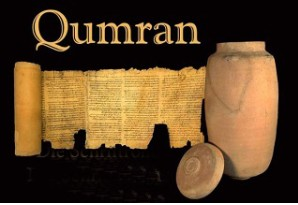
The last prophet and his culture
John the Baptist was the son of Elizabeth, married to Zechariah and cousin of Mary, who upon receiving the sign from an angel that she would conceive goes to visit her, the biblical narrative hurriedly says, but also because the angel tells her that she is full of doubts: “her cousin, who was barren, conceived in old age” (Luke 1:36-40), a passage full of interpretations, but that’s for later.
to Zechariah and cousin of Mary, who upon receiving the sign from an angel that she would conceive goes to visit her, the biblical narrative hurriedly says, but also because the angel tells her that she is full of doubts: “her cousin, who was barren, conceived in old age” (Luke 1:36-40), a passage full of interpretations, but that’s for later.
Who John the Baptist was was better clarified in the Dead Sea Scrolls (see reference) found in the Dead Sea, very recently, but which biblical readers and exegetes completely ignore.
Many controversies arose from the Qumran manuscript, including that Jesus was actually an Essene, another that some fled to India and founded communities there with their principles, some of these manuscripts were inside clay jars and spoke about the life of Jesus Christ and talked about the importance of cures with alternative medicine and the importance of vegetarian culture.
The Essenes also defended unity and peace, as it was a period of division among the Jews, several had contact with Jesus and are present in biblical passages, and thus already had a different cult than the Sadducees and Pharisees.
The Sadducees were people from high society, members of priestly families, educated, rich and aristocrats; The Pharisees did not believe in life after death and therefore said nothing about their eschatological vision (of the beginning and end), becoming more concerned with Jewish rules and “laws”.
The zealots, others who joined Jesus, rejected paying tribute to the Roman empire, on the grounds that such an act was a betrayal against God, among Jesus’ apostles, Simon was a zealot and Judas, the traitor too, and also the late apostle Paul of Tarsus refers to himself as a religious zealot (Acts 22:3; Gal 1:14).
This gives a more cultural and political context about Jesus and his apostles, it does not take anything away from their divinity, but it explains the controversies and contradictions with the more orthodox Jewish culture of the time.
Regarding this controversy, the Jewish academic Dr. Israel Knohl, president of the Biblical department at the Hebrew University of Jerusalem, and guest at the universities of Berkeley and Stanford, presents in his book: “The Messiah Before Jesus”, writes based on these parchments, the thesis that around the year of Jesus’ birth, a supposed messiah Menahem, the Essene, had died in circumstances similar to those of Jesus and this was known to Jesus.
Controversies aside, it does not weaken the biblical narratives of Jesus and John the Baptist, but it clarifies cultural and historical aspects better.
«The Weirdo Cult That Saved the Bible» (in english). Slate. Consulting in July of 2015.









